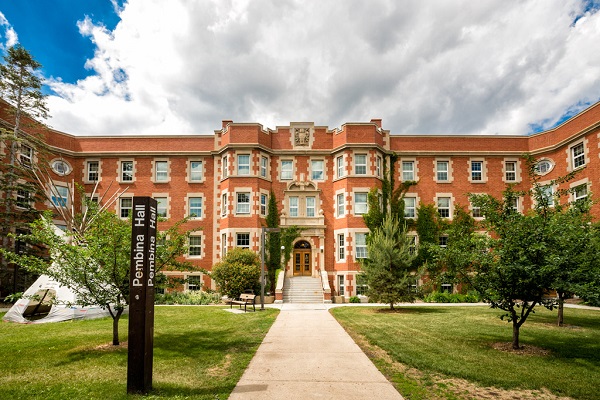University of Alberta: Researcher keen to expand Oxford research on history of sexuality while at U of A
As with many expatriates, it took leaving home for Lloyd (Meadhbh) Houston to see their country with clear eyes.
“I wanted to escape,” said Houston of the town of Holywood, in which they grew up, about 15 minutes from Belfast.
“One of the things I was fleeing was the justified reputation for social conservatism that haunts Ireland, north and south, to this day,” said Houston. “But the minute I left, I suddenly became fascinated by the culture and wanted to engage with it in a much more rigorous way than I had done when living there.”
Once settled in London, Houston’s sexual identity also “kind of clicked,” they said, prompting them to come out as non-binary and trans as they began studying Irish literature at Oxford University.
Along the way, they discovered that “Ireland has a rich queer history, and that’s part of what I’ve touched on in my research. It’s been really sort of heartening.”
Their chosen middle name, Meadhbh, denotes the queen of Connacht in Irish mythology, “this strong-willed, promiscuous sovereignty goddess who takes up arms to ensure that she is on an equal footing with her husband,” said Houston.
“She is described as being so arresting that she ‘quelled two-thirds of the valour of every man who beheld her,’ which was an energy I was very happy to channel.”
The more Houston pondered Ireland’s particular relationship to sex, the more their intellectual inquiry took shape, culminating in an Oxford doctorate on Irish modernism and the politics of sexual health. The thesis captured the prize for Oxford’s best in English literature for 2019–2020.
Houston’s work has appeared in the Review of English Studies, Irish Studies Review, The Times Literary Supplement, The Guardian and on the podcast Censored.
Now, having received Canada’s Banting Postdoctoral Fellowship—worth $140,000 over two years and awarded to 70 post-doctoral scholars across the country—Houston will take that project to its next phase in the U of A’s Department of English and Film Studies.
The Banting fellowships provide tri-council funding for post-doctoral scholars, nationally and internationally, to “positively contribute to the country’s economic, social and research-based growth,” according to the program’s website.
Houston found out about the fellowships from U of A English scholar Robert Brazeau over drinks at a James Joyce conference.
“We found ourselves to be intellectual kindred spirits,” said Houston, “especially with Rob’s work on Joyce studies and Irish modernism as well as the regulation and politicization of the body.
“I’m also interested in Cecily Devereux’s work on eugenic feminism and narratives of sexual danger.”
Houston said they chose the U of A because of its “vibrant intellectual life.”
“As much as I’ve loved being at Oxford, which was really integral to figuring myself out, I’m excited to shift perspective and join the team at UAlberta,” they said.
The working title of Houston’s post-doctoral project, which they hope will result in a book, is Bad Seed: Anglophone Modernisms and the Politics of Sexual Health.
“It’s a reformulation of things I was looking at in my PhD—how Irish culture responded and contributed to the medicalization and politicization of sex from about 1890 to about 1960.
“I may also try to bust some myths about the uniqueness of Ireland’s sexual conservatism and explore more layers to that story.”
Houston will expand the geographical scope of the project to include literature of the United Kingdom, the United States, Canada and parts of the Caribbean.
They are also hoping to organize a U of A conference on representations of the body in literature of the modernist period, and perhaps co-ordinate a “public engagement day” around the notion of sexual health.
“I’ve always tried to do public outreach engagement and do as many in-school workshops around gender diversity and sexuality as I can.”
After stifling COVID-19 restrictions in the U.K., Houston said they are eager to once again be immersed in face-to-face intellectual exchange.
“I’m very excited to profit from the company of other scholars.”

